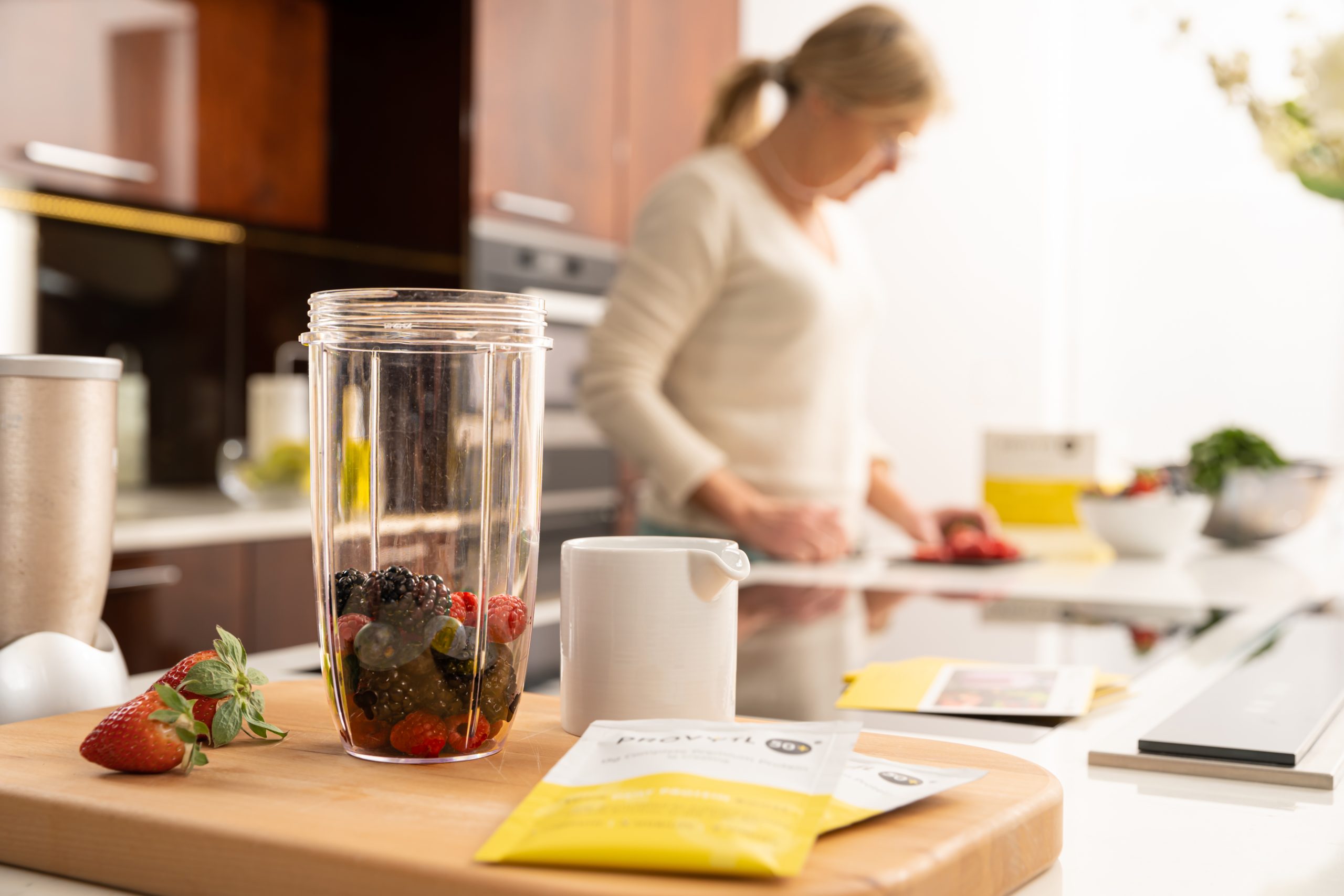The most important change to make to your diet after 50
Protein holds the key to aging strong and living well for longer
For many, living well for longer means remaining active, independent and able to do the things we love.
Whether it’s a park run or walking the dog, playing tennis or keeping up with teenagers and the grandchildren, staying strong and healthy as we age is vital to living the life we want.
Increasing our daily protein intake after the age of fifty is key, says registered dietitian Zoe Cottrell. “Working on surgical wards, I have seen too often how an insufficient diet contributes to increased frailty, which in turn can lead to a fall and loss of independence.”
Extra perks of protein
Protein is key to maintain muscle as we age, and it’s also essential for the absorption of minerals that keep our bones healthy and strong.
Protein also comes with extra perks: this key macronutrient is also needed to maintain good skin and hair and regulate mood.
Furthermore, protein keeps you full for longer (which can reduce the urge to snack), meaning it can be a key part of a programme aimed to keep belly fat at bay.
Why we need more protein as we age
Every decade after the age of 50, the average person loses 5-15% of lean body mass, which can lead to loss of strength and function.
As we age, muscle protein synthesis, where the body rebuilds and repairs muscle tissue from amino acids, slows down. We also become less efficient at converting the protein we do consume.
The solution is simple
The good news: incorporating extra sources of protein into your diet can help counter the body’s lowered ability to synthesise muscle. Aim to incorporate a good source of protein into every meal.
But most of us simply aren’t getting enough: A 2020 study of older adults found that less than 15% met the recommended daily protein intake for their age group.
-

Banana smoothy made with Provytl 50+
How much protein is enough?
Government guidelines suggest adults need .75g of protein per kilogram of body weight, but this doesn’t consider the overwhelming evidence that we need more protein as we get older. Recommendations from an international group of experts called the PROT-AGE study group reviewed the research and agreed that older adults need at least 1.2g protein/kg each day to maintain and regain lean body mass and function. They recommend older adults consume 25-30g protein per meal. Calculate your daily protein requirements using the free calculator at Provytl.com.
Recommended sources of protein
We often equate protein with meat, but there are many good non-meat options. Beans, nuts, tofu, tinned fish, and legumes are all protein-rich foods.
If you or someone you love is struggling to meet daily protein targets, a high-quality, whey-based protein powder like Provytl 50+ can help. Provytl 50+ is the only protein powder specially formulated to support healthy muscle function in people over fifty. It’s unsweetened and additive free, making it easy to stir into soups, porridge and drinks. Says Cottrell: “I’ve had clients tell me they’ve purchased it as a present for a partner or parent, and it really won points, especially when the gift came with help to prepare meals.”
Click here to order a trial pack or a monthly subscription, with free shipping currently on offer for orders over £30

 Written by: By Zoe Cottrell, registered dietitian and co-founder of Provytl 50+
Written by: By Zoe Cottrell, registered dietitian and co-founder of Provytl 50+
ADVERTORIAL





















